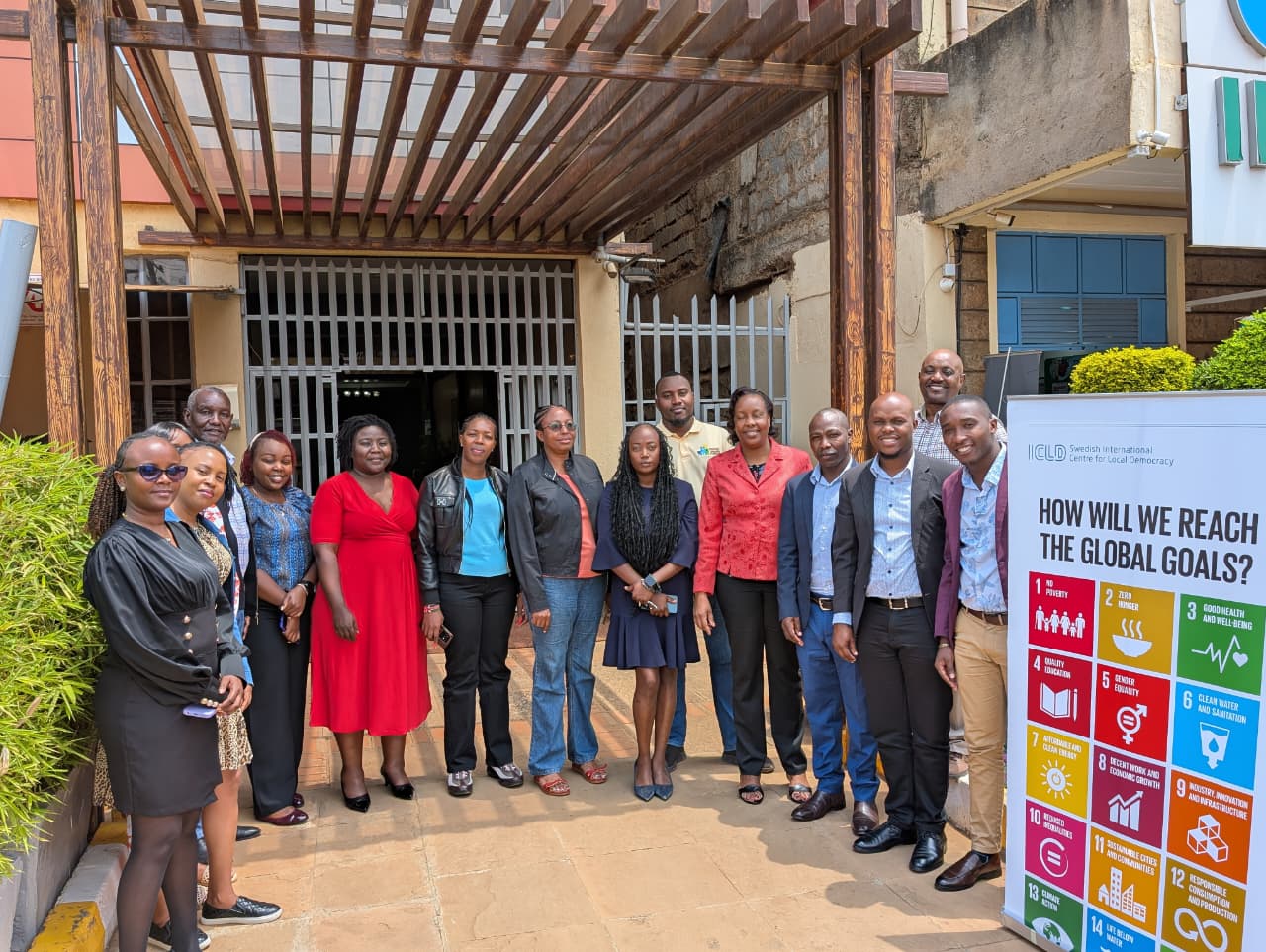Youth inclusion in local governance is a catalyst for building resilient, innovative and sustainable communities. Across East Africa, municipalities are discovering the power of Sustainable Development Goals (SDG) clubs in schools – platforms where students learn about the SDGs, develop leadership skills and take action in their communities. These clubs are a powerful result of the ICLD partnership between Kibaha and Region Gotland, demonstrating how international cooperation can lead to meaningful youth engagement and more sustainable local development.
In May 2025, ICLD arranged a conference for alumni and local government representatives from partner regions in East Africa who gathered in Kibaha, Tanzania, to learn how schools could become platforms for youth-led action on the SDGs. Educators and students from the Kibaha Education Centre shared first-hand experiences of working with SDG Clubs, inspiring their peers from Kenya, Uganda, and Tanzania with practical examples of what youth-led engagement could look like. The training concluded with a declaration of commitment, signed by all participants, to establish SDG Clubs in their respective municipalities.
The premise is simple but powerful: SDG Clubs in schools can harness the creativity and commitment of young people, offering them structured spaces to engage with global challenges while acting on local priorities. For municipalities, it is a chance to meet their responsibilities as duty-bearers while investing in future democratic leaders. For students, it is an opportunity to connect learning with real-world problem-solving, and to work in partnership with their local authorities.
Good results travel: the impact of inter-local exchanges
Just a few months later, the ripple effects are already evident. In Temeke and Chato in Tanzania, partnerships between municipalities and schools are taking root to establish new clubs. In Arua City, Uganda, plans for the first SDG Club at a public secondary school are underway, supported by school leadership. The Association of Local Governments in Tanzania (ALAT) has issued wide recommendations of strengthening SDG awareness in schools. In Kenya, momentum gathered in counties and municipalities like Murang’a, Machakos, and Kiambu, where local administrations initiate collaborations with schools to provide training, mentorship, and oversight. Using the toolkit as a guide, they explore how to set up clubs, draft constitutions, and link activities to everyday realities in their schools and communities.
Follow-up training in Kenya
By September 2025, Kiambu County, Kenya, had enough momentum to host the second training for local governments, school representatives, and civil society actors from across Kenya.
Teachers and students from Thika Primary and Ngoigwa Secondary shared their early experiences, demonstrating how clubs can move from idea to practice with support from municipal departments. The presence of a dedicated desk within Kiambu’s municipal administration to coordinate school engagement underscored the seriousness of the commitment.
Importantly, this was linked to the wider work that Kiambu has undertaken in advancing SDGs and inclusive governance. Involving children and youth in local development aligns with the county’s journey toward a listen-first approach to policymaking that takes the perspectives of vulnerable groups into account.
See the Alumni Talk where Kiambu discusses post-training steps toward institutionalizing new knowledge.
Why SDG Clubs Matter
The story of the SDG Clubs is ultimately about reimagining the role of young people in local democracy. Rather than being passive recipients of decisions made on their behalf, they are becoming active partners — shaping agendas, leading projects, and forging connections between classrooms and councils.
For local governments, this is not only a moral imperative but also a strategic investment. Involving youth strengthens democratic resilience, creates practical solutions to pressing challenges, and ensures that the values of sustainability, participation, and inclusion are woven into the fabric of everyday governance.
Looking Ahead
What began as a municipal partnership project in Kibaha is becoming a regional movement, spreading knowledge, tools, and enthusiasm across borders. This is possible through the wide network of ICLD Alumni, who continue to seek opportunities to learn from each other and share progress. With continued mentorship, institutional support, and peer learning, they have the potential to transform how local governments engage with their communities.
The Toolbox is developed from Kibaha’s municipal partnership with Region Gotland. Explore to learn about the formation, purpose and benefits of SDG Clubs:


